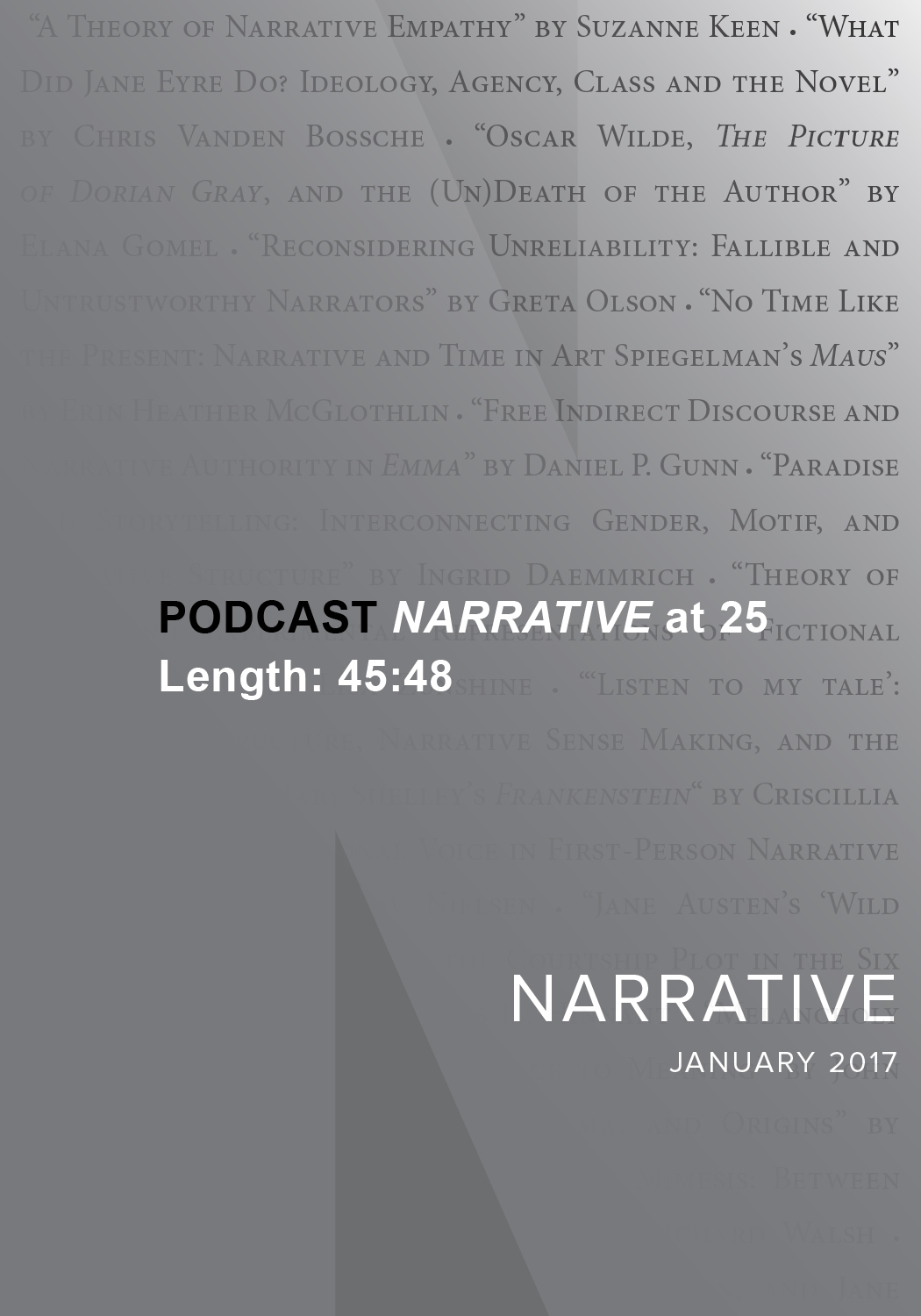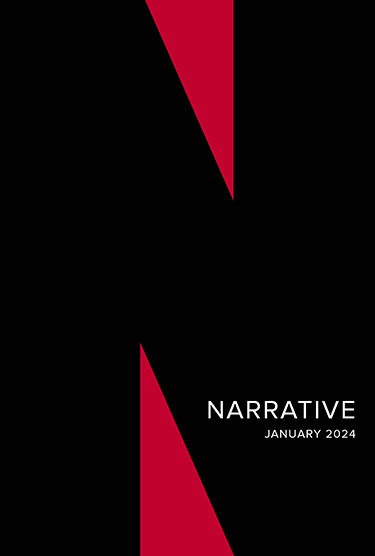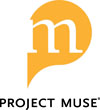Instructions to Contributors
Narrative publishes essays on narrative theory, essays on narrative and its relations to other modes of discourse, and essays of practical criticism based in diverse theoretical modes. The editors especially welcome submissions combining theoretical investigation and practical criticism. “Narrative” for us is a category that includes the novel, narrative poetry, history, biography, autobiography, film, and performance art. Because of our diverse audience, we are not interested in essays whose main contribution is to offer a new reading of a narrative by Author X. However, we do welcome new readings that are linked with some theoretical exploration or that are of interest in some other way to those who are not specialists in Author X.
Examples that indicate—but do not exhaust—the range of the journal:
- explorations of theoretical issues, e.g., a consideration of the powers and limits of the story-discourse distinction
- essays on narrative as a kind of discourse, e.g., narrative vs. lyric; film narrative in relation to verbal narrative
- combinations of theoretical inquiry and practical application, e.g., a reexamination of the relationship between homodiegetic and heterodiegetic narration in connection with an analysis of the narration ofVanity Fair
- readings of individual narratives that are part of some larger theoretical project or that point to implications beyond the particular text under discussion, e.g., Middlemarch’s relation to Victorian conceptions of ideal femininity or Lord Jim’s place in a Marxist history of the novel
- readings of individual narratives that significantly revise received opinions about them or that are especially compelling performances in themselves
- essays of institutional criticism or cultural commentary that focus on narrative or issues in narrative studies, e.g., an analysis of the implied narratives of different kinds of pedagogy; a study of the culture war as a struggle over narrative authority
New Sections
Starting in Fall 2024, Narrative invites two new kinds of submissions:
- We’d welcome the opportunity to publish new, previously unpublished work in the field from scholars from around the world. If you have written a piece of innovative narrative theory composed in a language other than English, please submit the piece and a summary of its main arguments in English. We will send it out for peer review by a scholar conversant in the language in which it was written. If it is accepted, we will work with you to produce a translation. You can also co-submit your piece along with a designated potential translator.
- We’d also welcome the opportunity to publish translations of previously published work in narrative theory that has not yet appeared in English or whose existing English translations you find do not do it justice. Submissions in this latter category should include a brief, no more than 500-word statement on the importance of translating this work. Again, our peer review process will include scholars who can read and comment on the piece in the original.
Manuscript Requirements
Format. Manuscripts should be double-spaced with one-inch margins and with left-margin justification only. Submissions are accepted via Scholastica.
Word Limits. Length is less important than substance, but in practice most essays that we publish fall within the range between 6,500 and 9,000 words.
Quotations. Quotations of fewer than eight lines are run into the text; quotations of eight lines or more are set as extracts. Citations. Narrative now follows The Chicago Manual of Style (18th ed.) Notes and Bibliography system, in which authors use a short citation in a note—even on first mention—and provide full publication details in a complete bibliography. Note that in the 18th edition, Chicago no longer recommends including a city of publication and no longer requires a page range for a chapter in an edited volume. Further details are available on the Chicago Manual of Style website: https://www.chicagomanualofstyle.org/tools_citationguide/citation-guide-1.html.
Endnotes. Narrative uses endnotes, not footnotes, for both citations and commentary. Because all sources will have full publication information in the bibliography, information in the note should include only author last name (plus a first initial if needed to distinguish two authors who have the same last name), a shortened form of the title (usually five words or less), and a page number as needed.
Bibliography. All submissions should include a double-spaced complete bibliography for all cited works. See chapters 13 and 14 of The Chicago Manual of Style for more guidance.
Examples:
Shortened citation in note, book: Gold, Literary Theory, 138.
Entry in bibliography: Gold, Craig. Literary Theory. The Ohio State University Press, 2012.
Shortened citation in note, chapter in edited volume: 2. Lee, “Anachronistic Figures and Counternarratives,” 89.
Entry in bibliography: Lee, Jin. “Anachronistic Figures and Counternarratives: Comics as a Subversive Form in American Born Chinese and Johnny Hiro.” In Beyond the Icon: Asian American Graphic Narratives, edited by Eleanor Ty. The Ohio State University Press, 2022.
Shortened citation in note, journal article: 3. Noletto and Sebastião, “Heptapod B,” 88–89.
Entry in bibliography: Noletto, Israel A. C., and Sebastião A. T. Lopes. “Heptapod B and the Paradox of Foreknowledge: Confronting Literature and Its Filmic Adaptation.” Arcadia 54, no. 1 (2019): 86–100.
Images. Images should be sent individually, in TIFF, JPG, or PNG format, at least 300 dpi at page display size. The files should be numbered consecutively, and captions should be provided, including a permission line where appropriate. In the text, include placement callouts (Figure X about here) and alt text for accessibility for use with screen readers or other assistive devices. Alt text should be brief (150 characters or less) and specific.
Abstract. Submitted manuscripts should contain an abstract following the guidelines below:
- Length: 250 words or less
- Content: A synopsis of the essay's central problem or question in no more than two sentences. An overview of the essay's proposed solution/answer to that problem/question. A brief indication of the essay's methodology. A brief explanation of the essay's significance for the critical conversations it seeks to influence. In other words, an indication of the essay's answer to the "so what?" question.
For a more detailed (though still short) discussion of how to write an effective abstract, see this piece by Faye Halpern and James Phelan: https://www.insidehighered.com/advice/2017/02/23/importance-writing-effective-abstract-when-you-submit-journal-article-essay.
Keywords. These should cover the most important concepts or ideas in an article, targeting words or phrases to direct scholars who are searching for papers on this specific topic. 4-6 keywords is typical.
Author biographical information. An author(s) bio of no more than 60 words per author should be included with each submission. It should include an email address.
Copyrighted Material. Permission to reprint any previously published material (e.g., poetry and illustrations) must be obtained by the author from the copyright holder.
Submissions are now accepted via Scholastica.
Advisory Board
Frederick Luis Aldama, University of Texas at Austin, US
Michael Awkward, University of Pennsylvania, US
Jay Clayton, Vanderbilt University, US
Susan Stanford Friedman, University of Wisconsin-Madison, US
Jared Gardner, The Ohio State University, US
Margaret Homans, Yale University, US
Cajetan Iheka, Yale University, US
Audrey Jaffe, University of Toronto, Canada
Sue J. Kim, University of Massachusetts, Lowell
Susan S. Lanser, Brandeis University, US
Brian McHale, The Ohio State University, US
Alan Nadel, University of Kentucky, US
James Phelan, The Ohio State University, US
Gerald Prince, University of Pennsylvania, US
Ragini Srinivasan, Rice University, US
Dan Shen, Peking University, China
Dennis Tenen, Columbia University, US
Frequency—3 issues per year
Ad closing dates
| Issue | Reservations & copy to be sent by | PDF file due by | ||
| January | August 10 | September 1 | ||
| May | December 10 | January 1 | ||
| October | May 10 | June 1 |
Rates
- Full page: $300
- Half page: $200
Agency commission: 15%
Typesetting and paste up: Billed at cost
Terms: Payment due 30 days from invoice date; no cash discount; minimum order one-half page; no classified advertising; content of advertisement subject to approval by the publisher.
Mechanical requirements
Full page: 4-5/8 inches by 7-1/2 inches (28 picas by 45 picas)
Half page: 4-5/8 inches by 3-5/8 inches (28 picas by 22 picas), horizontal only
Trim size: 7 inches by 10 inches. Bleeds not accepted. Black and white only. 120 line screen. Printed offset on natural-shade, 50 pound stock. Perfect bound.
Electronic Submission: PDF with downloadable fonts included
Mailing List
Rates: $100/M Cheshire or an electronic file in ASCII format, $110/M pressure-sensitive, plus postage. 5% discount to subscription agencies.
Indexing and Abstracts
American Humanities Index, Arts and Humanities Citation Index, Current Contents, International Repertory of the Literature of Art, Linguistics and Language Behaviour Abstracts, MLA International Bibliography, and Research Alert.
Code of Ethics
All OSUPress journals follow the Code of Ethics detailed here.
To sign up to receive each new issue's Table of Contents
 Hear James Phelan, of the Ohio State University and Editor of Narrative, interview Gerald Prince, Professor of Romance Languages at Penn, and the elder statesman of the Society, and Susan Lanser, recently retired from Comparative Literature at Brandeis, and the person who initiated the branch of the field called feminist narratology. Both Gerry and Sue are past presidents of the Society. Also joing them is Per Krogh Hansen, from the University of Southern Denmark. He's a former director of their Center for Narratological Studies. And Sue J.Kim, Professor at the University of Massachusetts, Lowell. Sue works on race and narrative and was the coordinator of the Boston Conference in 2014.
Hear James Phelan, of the Ohio State University and Editor of Narrative, interview Gerald Prince, Professor of Romance Languages at Penn, and the elder statesman of the Society, and Susan Lanser, recently retired from Comparative Literature at Brandeis, and the person who initiated the branch of the field called feminist narratology. Both Gerry and Sue are past presidents of the Society. Also joing them is Per Krogh Hansen, from the University of Southern Denmark. He's a former director of their Center for Narratological Studies. And Sue J.Kim, Professor at the University of Massachusetts, Lowell. Sue works on race and narrative and was the coordinator of the Boston Conference in 2014.
Click for an mp3 of the first Narrative podcast.
Transcript for the podcast available here.




